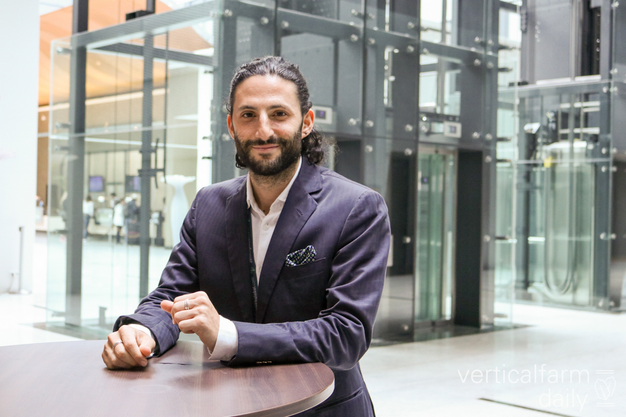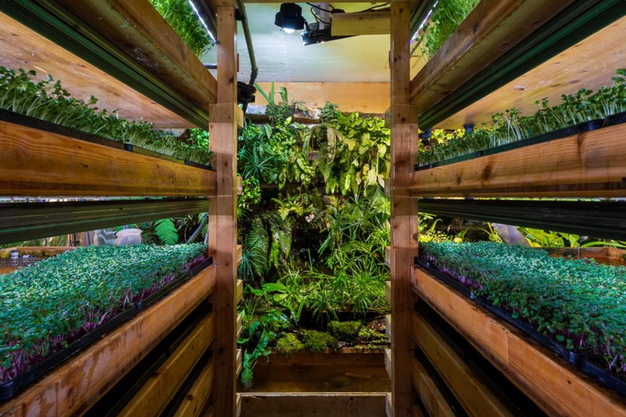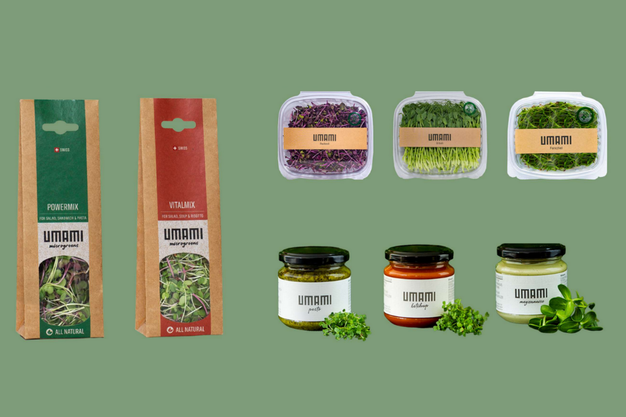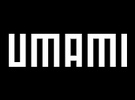"The only emissions we generate come from input factors like seeds and substrates. Umami aimed to cultivate a wide variety of plants and animals, striving for diversity in both their plant and animal portfolios. By integrating permaculture with indoor farming, we eliminate the need for additional CO2 to produce fertilizers since it's already part of our system. In fact, our core system is CO2-negative," says Denis Weinberg, Co-founder of Umami, a Swiss vertical farm that focuses on 'biosphere farming'. Based in Zurich, the 600m2 farm grows microgreens as its main product for B2B markets.

Denis Weinberg with Umami
At the moment Umami is not meeting the criteria of Net Zero, but that's the goal of 2030, Denis explains. "In essence, we minimize the CO2 usage in our facility, but also around the resource aspect. The system itself produces CO2, but the goal is to be CO2 negative or neutral in the long run." In theory, we could sell the CO2 to others.

Wood vs steel
As you might see, the environment looks slightly different to your 'mainstream vertical farms' as the racks are made of wood, and the lighting can come off as more ambient than others. But, what is biosphere farming? It's an alternative for vertical farming as Denis describes it as 'the cultivation of high-yield and chemical-free biospheres to grow pure food year-round'.
"Our biotechnology is based on the principles of aquaponic. We have various water animals in our tanks such as fish, crabs, mussels, and others which are fed with organic products on which they will generate waste. This waste is the perfect food for our beneficial bacterias who will eat and digest it to turn them into plant nutrients. It's a win-win system for the fish and plants."

Reach in retail
Supplying over 24 products, Umami is currently growing three different kinds of microgreens mixes sold in retail stores of Coop and Migros. Then, the farm has 20 microgreen varieties sold to wholesalers domestically. On top of that, Umami wanted to diversify itself by bringing 6 microgreens refinement sauces to the table, a rare product on the market. Some of these are pesto, mayonnaise, and mustards. "We recently launched a new series of spreads that can be used for toast," Denis adds.
Some challenges Denis faces in production is that 'they're dealing with living organisms'. Thus sometimes it might be more of a battle to get all the parameters right in the growing room. "Now we're producing leafy greens and microgreens but when tapping into tomatoes, or other crops that might be even more tricky without having chemical fertilizers in there. We have all the microbiomes in there, but to get enough nutrients in there for other parts, the question is to do it naturally without adding chemical fertilizers. However, we've just started a project on that with a close university to explore the potential of natural fertilizers."
For those unable to join this year's event, Zenith is delighted to announce that exclusive post-event access is now available, including downloadable PDF presentations and recordings of all the presentations and panels from the Congress. Click here for full details, or get in touch at [email protected].
 For more information:
For more information:
Umami
Denis Weinberg, Co-founder
[email protected]
www.eat-umami.ch/en
